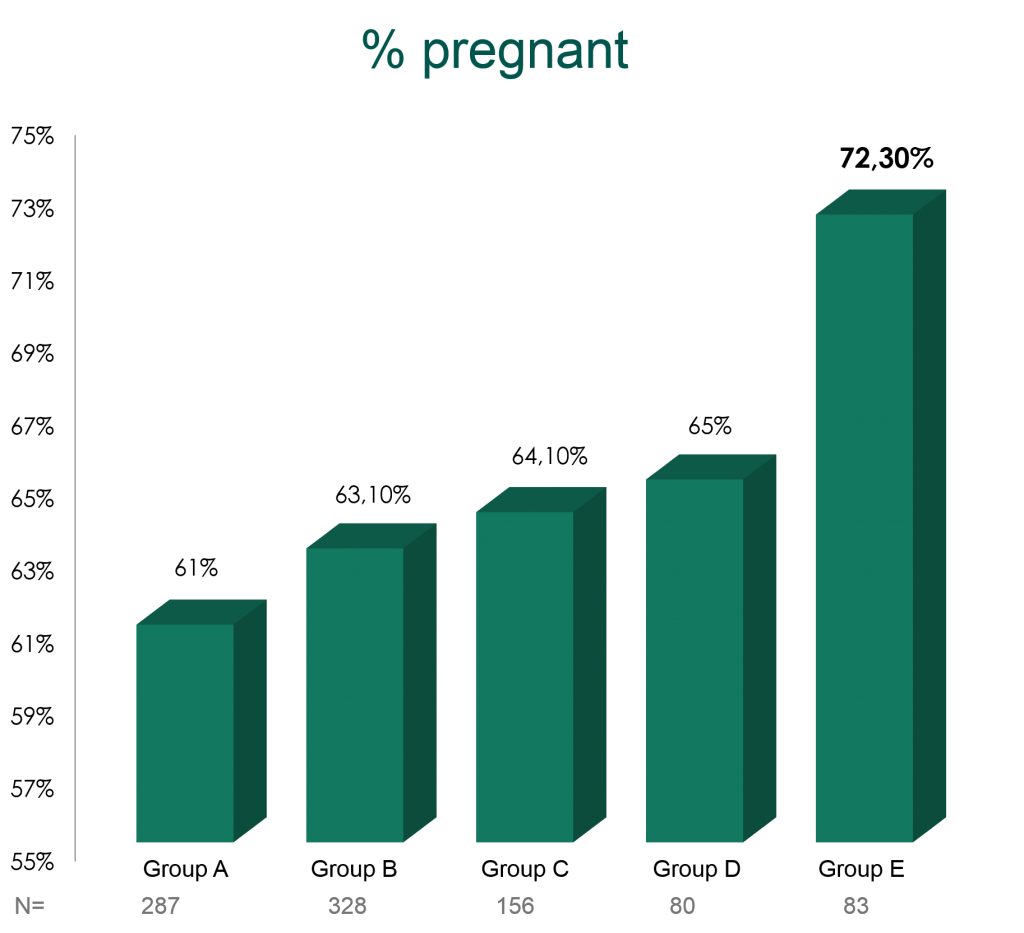Patients always ask us what kind of lifestyle, medication, alternative therapies, etc. In short, what can they do by themselves to achieve better results. However, the truth is that, statistically, there is not a serious study that validates everything that has been tried up to date.
My position so far has been thinking that a good embryo in a very well prepared crib is the only thing that is necessary and, despite all the efforts in research (ours and from our colleagues) in this respect, nothing has been proved to be effective ).
That is the reason why we are so happy, because for the first time, we have found something that empowers patients to improve the pregnancy rates in IVF treatments: PROGRAMMING THEIR BRAIN!!!!
We have just published a scientific study where we have observed that patients who monitor their embryos have better pregnancy rates and, furthermore, these increase in direct proportion to the number of times that they connect to be with them. The French Society of Reproduction has selected this research among the best three of this year!!
As you know, patients in our centre have continuous access to the images of their embryos in real time through an online application (Embryomobile).
We have carried out a study that relates pregnancy rates with the number of times that patients connect to see their embryos through their computer or their mobiles. In this retrospective study were included 934 women undergoing an IVF cycle with egg donation who got a single embryo in fresh transferred. They were distributed into five groups, according to the total number of times they visualised them during 5 days, the period that spans from the beginning of the IVF process to the moment the embryo reaches the blastocyst stage and is ready to be transferred to the mother’s uterus.
We carried out an analysis of the pregnancy rates in the 5 groups.
Have a look at the results!!!

It is also significant that the most notable increase occurs mainly when 30 visualisations are exceeded, since in this case the pregnancy rate reaches a 72, 3%. The groups can be compared in terms of age of the donors and recipients and quality of the transferred embryos.
We know that infertility itself and assisted reproduction treatments cause stress and anxiety, but never before has it been possible to establish a direct relationship with the chances of success. In previous studies from Institut Marquès we observed that monitoring one’s embryos reduces the anxiety degree of the patients being treated because they can observe that their embryos keep dividing and this allows them getting to the transfer day knowing what has happened to them. However, we have NOT found any relationship between the degree of anxiety and the pregnancy rates carrying out a similar analysis to the one I have presented now.
Psycho-Neuro-Endocrine-Immunology is a medical discipline that studies relations between the four control systems that people have: psychological, hormonal, neurological and immune and how they can affect the behaviour and health of persons, as well as the body- mind interactions and its clinical implications. Formerly it was thought that each system acted separately, but now we know that they work together. We all know, for instance, which diseases can lead to severe chronic stress rates.
The psychologist Bernabé Tierno explains. “A positive mind “beat” is almost as important as the heartbeat. Being a good person, loving beyond measure and devoting one’s existence enjoying doing the good for others is the best guarantee of physical, mental, psychological and emotional health”.
Thus, our hypothesis is that repeated visual stimulation of the images of their embryos triggers in patients a cascade of reactions that begin in the brain and generate an emotional connection with them, activating the immune and hormonal system, resulting in women having a better uterus receptivity.
This scientific study proves for the first time the impact of emotions on the results of In-Vitro fertilisation.


Leave a comment